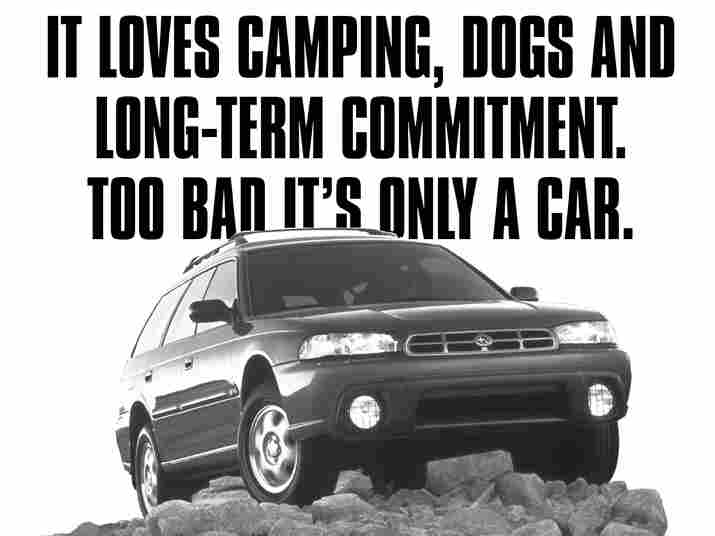ARI SHAPIRO, HOST:
For the past two weeks in our series Stretched, we’ve talked about how much pressure working parents are under in the U.S. and how little support many of them get. Many of you have been talking about this, too. You’ve been sending us voice memos, joining the conversation online, and some of your stories stood out. Here’s NPR’s Jessica Deahl, the series’ producer.
JESSICA DEAHL, BYLINE: Kathleen Jackson works for a nonprofit in Washington, D.C., but she has another job, too.
KATHLEEN JACKSON: I am the mom of three amazing boys that I adopted through D.C.’s foster care system.
DEAHL: As a foster parent, she is stuck in a tough position. Jackson says to even be approved to foster, she had to be employed. That’s to weed out people who foster just for money. But her employer, like many others, doesn’t have policies to support foster parents.
JACKSON: The association that I work for gives maternity leave, but it’s disability. And when my children were placed with me, I wasn’t made disabled, so I didn’t qualify.
DEAHL: When her first child came to her, he was four months old. Jackson took no time off. She worked from home, wearing the baby in a carrier. From there, it didn’t get easier.
JACKSON: Because the kids come with their challenges, they often come with a lot of needs that require a lot of doctor’s appointments and a lot of follow up and a lot of time off during the day. And it just stretches the foster parents if they don’t have a lot of backup.
DEAHL: We heard a lot of stories like this – parents who have no paid leave, no unpaid leave, who might lose their job if they take time off to care for a child. But there’s another side, too – parents often on the high end of the income spectrum in competitive fields who were recruited to jobs with generous benefits.
Heather’s one. She’s a lawyer. We’re just using her first name because she doesn’t want to hurt her career talking about this. The New York City law firm that recruited her offered 16 weeks fully paid maternity leave.
HEATHER: I mean from my perspective, from the outside world, seeing 16 weeks, I thought, this is amazing.
DEAHL: Once inside the firm, she learned if you actually take the leave, there are repercussions.
HEATHER: You go into this really being told that the firm is going to support you and that we have found a way to really figure this out. And then at the end of the day, once you have your child and there’s no going back, it’s done.
And you then realize you’re not going to be on the good cases. You’re not going to get the billables. You’re not going to get the promotion. And when you complain and say it’s unfair, you’re basically told life is unfair.
DEAHL: Heather describes all of this as a bait and switch. She ultimately left that firm. And it’s not only mothers feeling this pressure. Peter from Boston reached out to us. We aren’t using his last name for the same reason. He works for a financial services firm that offers four weeks of paid paternity leave. But he says he wasn’t exactly encouraged to take it.
PETER: I started to notice a little tension when I went to take it. My ultimate boss was kind of expressing without saying it that he wanted to be clear I was ready to be re-focused on work when I came back.
And I took three weeks immediately following the birth. Then the fourth week, specifically I was told third-hand that it seemed like maybe my head wasn’t work if I was thinking about taking extra leave, and that really bothered me.
DEAHL: Peter says in his view, the culture at his firm just doesn’t match the policy. Now, over the course of this series, we heard from a lot of non-parents, too, people who are affected when their co-workers take parental leave.
Michael Lauder (ph) of Greensboro, N.C., works for an apartment management company. He says it can be difficult when a colleague is out, but he thinks that can be an opportunity to bring in a younger worker and give them experience.
MICHAEL LAUDER: Having somebody that could be part-time, you know, someone with a flexible schedule. College students are great for that. That’s for sure. That’s how I started off. It’s a really, really good job to have just to get some experience.
DEAHL: Ellen Bravo of the group Family Values @ Work says for the employers that can manage it, that’s a great idea, one that could give all employees an opportunity for caregiving, something she’d very much like to see.
ELLEN BRAVO: The best way to operate is to see each of us as a whole person and to recognize that the employee that walks in the door may have just fed a baby or a dad who had a stroke or helped a foster child get ready for a new school. And when we see that person and make room for them, they’re going to be a more productive employee.
DEAHL: Ellen Bravo has been advocating for family-friendly policies like this since the early ’80s when she had two babies and a job with no paid parental leave, no paid sick days. Now with more companies offering benefits for working parents, paid leave laws rolling out in some states and both presidential candidates talking about this, she feels optimistic.
BRAVO: The greatest news is this has stopped being a question of whether we should enact these policies and instead become a question of when and how.
DEAHL: Jessica Deahl, NPR News.
Copyright © 2016 NPR. All rights reserved. Visit our website terms of use and permissions pages at www.npr.org for further information.
NPR transcripts are created on a rush deadline by Verb8tm, Inc., an NPR contractor, and produced using a proprietary transcription process developed with NPR. This text may not be in its final form and may be updated or revised in the future. Accuracy and availability may vary. The authoritative record of NPR’s programming is the audio record.



